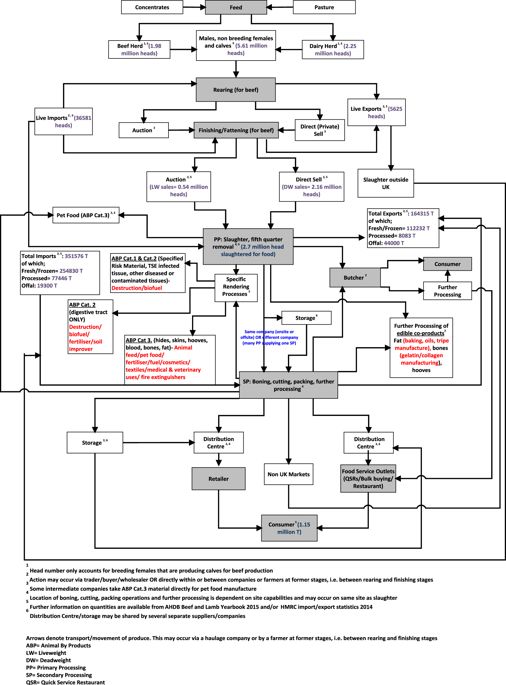npj Science of Food ( IF 6.3 ) Pub Date : 2017-11-06 , DOI: 10.1038/s41538-017-0007-z Stephanie Brooks , Christopher T. Elliott , Michelle Spence , Christine Walsh , Moira Dean

|
Complexities in food supply chains were highlighted by the so called ‘horsegate’ crisis in 2013, where beef meat was fraudulently adulterated with horse meat causing widespread recalls and subsequent investigations across both retail and food service markets in the European Union (EU). The beef supply chain is a complex supply chain, with global (EU and Non EU) sourcing strategies in order to secure supply. However, managing these complex supply chains can be difficult and consequentially can expose vulnerabilities similar to that of horsemeat, where horsemeat was found in beef meat within EU supply chains. Six months after the crisis broke, an independent review into the integrity and assurance of food supply networks was commissioned by the UK government and undertaken by Professor Chris Elliott of Queen’s University, Belfast. The review recommended eight pillars of food integrity to industry and government: consumers first, zero tolerance, intelligence gathering, laboratory services, audit, government support, leadership and crisis management. This article examines the extent to which these recommendations have been implemented using personal communications from Professor Chris Elliott and relevant industry bodies. Following the review, industry attitudes have changed substantially, testing and surveillance systems have been integrated into normal industry practice and the government is more prepared for future incidents through the establishment of the National Food Crime Unit (NFCU). Horsegate raised the profile of food fraud and crime in supply chains and despite improvements to date, further collaboration between industry and government is required in order to align fully with the recommendations.
中文翻译:

骑马后四年:2013年马肉事件后采取的措施和行动的最新动态
2013年发生的所谓“马蹄之门”危机突显了食品供应链中的复杂性,当时,牛肉被伪造成马肉掺假,导致广泛召回,并随后在欧盟(EU)的零售和食品服务市场进行调查。牛肉供应链是一个复杂的供应链,具有全球(欧盟和非欧盟)采购策略以确保供应。但是,管理这些复杂的供应链可能很困难,因此可能暴露出与马肉类似的漏洞,后者在欧盟供应链中的牛肉中发现了马肉。危机爆发六个月后,英国政府委托贝尔法斯特女王大学的克里斯·埃利奥特(Chris Elliott)教授对食品供应网络的完整性和保障进行了独立审查。审查向行业和政府推荐了食品完整性的八个支柱:消费者至上,零容忍,情报收集,实验室服务,审计,政府支持,领导力和危机管理。本文通过Chris Elliott教授和相关行业机构的私人来文探讨了这些建议在多大程度上得到了实施。审查之后,行业态度发生了很大变化,测试和监视系统已整合到正常的行业实践中,并且政府通过建立国家食品犯罪部门(NFCU)为将来的事件做好了更多的准备。Horsegate在供应链中提高了食品欺诈和犯罪的知名度,尽管迄今为止已有所改善,











































 京公网安备 11010802027423号
京公网安备 11010802027423号